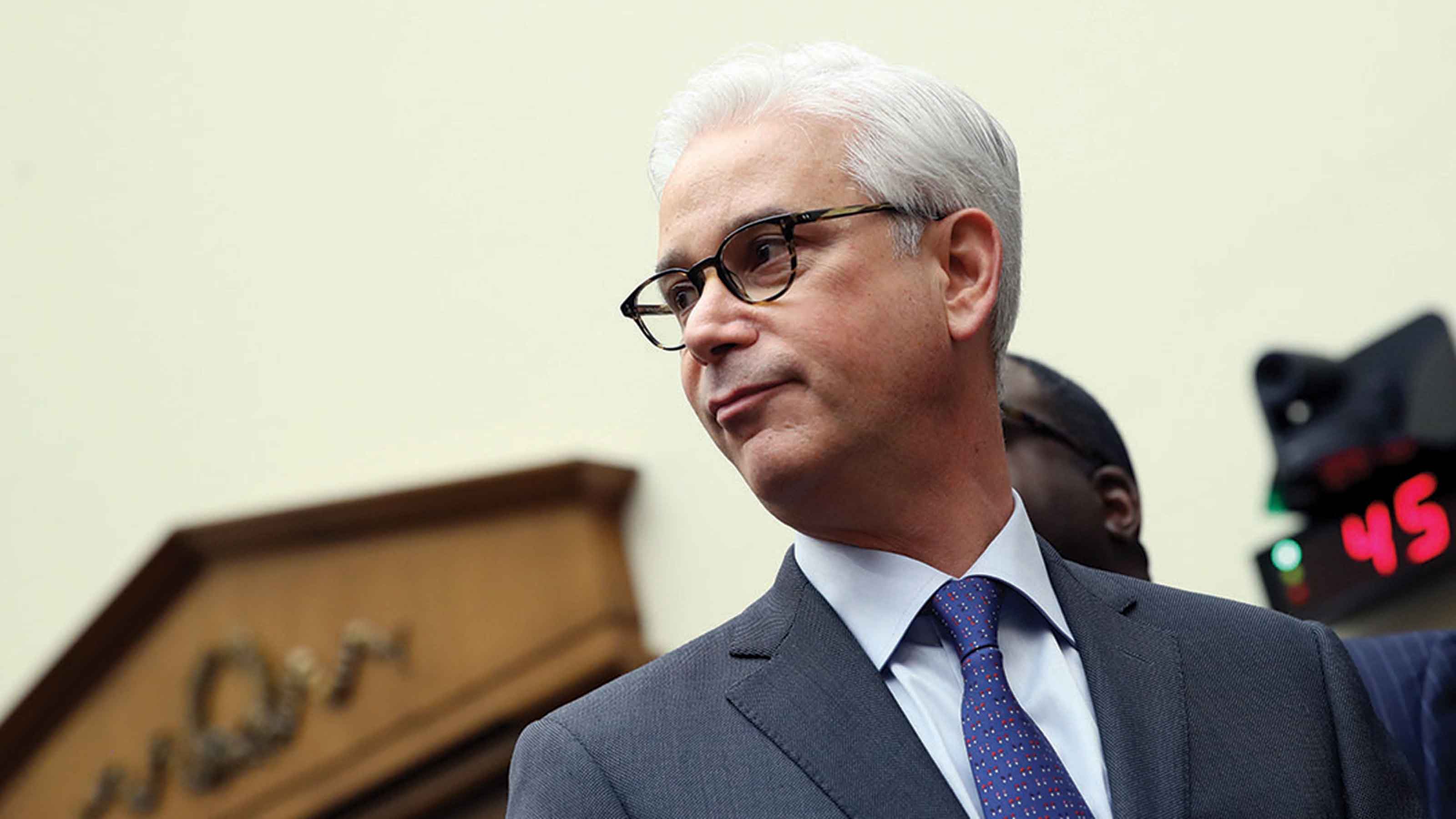How a Border Tax Would Affect You
A plan to limit imports could raise prices but also create more jobs.

Profit and prosper with the best of Kiplinger's advice on investing, taxes, retirement, personal finance and much more. Delivered daily. Enter your email in the box and click Sign Me Up.
You are now subscribed
Your newsletter sign-up was successful
Want to add more newsletters?

Delivered daily
Kiplinger Today
Profit and prosper with the best of Kiplinger's advice on investing, taxes, retirement, personal finance and much more delivered daily. Smart money moves start here.

Sent five days a week
Kiplinger A Step Ahead
Get practical help to make better financial decisions in your everyday life, from spending to savings on top deals.

Delivered daily
Kiplinger Closing Bell
Get today's biggest financial and investing headlines delivered to your inbox every day the U.S. stock market is open.

Sent twice a week
Kiplinger Adviser Intel
Financial pros across the country share best practices and fresh tactics to preserve and grow your wealth.

Delivered weekly
Kiplinger Tax Tips
Trim your federal and state tax bills with practical tax-planning and tax-cutting strategies.

Sent twice a week
Kiplinger Retirement Tips
Your twice-a-week guide to planning and enjoying a financially secure and richly rewarding retirement

Sent bimonthly.
Kiplinger Adviser Angle
Insights for advisers, wealth managers and other financial professionals.

Sent twice a week
Kiplinger Investing Weekly
Your twice-a-week roundup of promising stocks, funds, companies and industries you should consider, ones you should avoid, and why.

Sent weekly for six weeks
Kiplinger Invest for Retirement
Your step-by-step six-part series on how to invest for retirement, from devising a successful strategy to exactly which investments to choose.
After grappling with your own tax return, you probably haven’t given a lot of thought to how much Apple and ExxonMobil pay Uncle Sam. But a Republican plan to reengineer the corporate tax code could have a direct impact on your bottom line. How much? That depends on whom you talk to and where they stand on the border adjustment tax.
The border adjustment tax would eliminate taxes on income from products sold outside the U.S. while removing tax deductions for the cost of imported goods, which would effectively impose a 20% surcharge on imports. Proponents say the change would encourage companies to make products in the U.S., thus generating more jobs. The tax on imports would raise an estimated $1 trillion over 10 years, enabling the government to cut corporate tax rates—currently, the highest in the world—from 35% to 20%. Chief executives of companies that are big exporters, such as Boeing, Caterpillar and Pfizer, are big fans of the BAT. They say the current business tax code gives an unfair advantage to foreign competitors and foreign-made goods.
But chief executives from Wal-Mart, Target, Macy’s and dozens of other retailers contend that the BAT would increase the cost of just about everything by up to 20%. For most consumers, switching to items made in the U.S. isn’t an option. About 97% of the clothes and 98% of the shoes sold in the U.S. are made overseas, according to the American Apparel and Footwear Association. “Whether it’s the automobile you drive, the gasoline you use, the groceries you put on the table, or the shoes and the clothes you put on your feet and back, the prices of all of those things will get driven up by the border adjustment tax,” says National Retail Federation chief executive Matthew Shay. The BAT has strong support from House Republican leaders but faces headwinds in the Senate, where some Republican lawmakers have expressed concern about how it will affect big retailers.
From just $107.88 $24.99 for Kiplinger Personal Finance
Become a smarter, better informed investor. Subscribe from just $107.88 $24.99, plus get up to 4 Special Issues

Sign up for Kiplinger’s Free Newsletters
Profit and prosper with the best of expert advice on investing, taxes, retirement, personal finance and more - straight to your e-mail.
Profit and prosper with the best of expert advice - straight to your e-mail.
The plan’s supporters argue that a sharp increase in the value of the dollar would help offset any price hikes. Here’s how: The tax break for U.S. exporters would allow those companies to lower prices initially, which would increase demand for their products overseas. That, in turn, would boost demand for dollars, driving up the value of the greenback by 20% or more. A stronger dollar would increase purchasing power for U.S. companies and consumers who buy materials or products from overseas, thus offsetting the higher tax on imports.
Because a BAT has never been tried, it’s unknown how long it would take to reach that kind of equilibrium. Currency traders might buy dollars in anticipation of a policy change, hastening the greenback’s rise. But economists at the Institute on Taxation and Economic Policy, a nonpartisan research group, say the adjustment overall could take years, and in the meantime, at least some portion of the tax would be passed on to consumers.
If you’re planning a trip to Paris, a stronger dollar is great news, but it has its pitfalls, too, particularly where your portfolio is concerned. As the dollar rises, it depresses returns from investments denominated in foreign currencies. One way around that problem is to look for funds that hedge their currency exposure, such as FMI International (symbol FMIJX), a member of the Kiplinger 25, the list of our favorite funds.
Profit and prosper with the best of Kiplinger's advice on investing, taxes, retirement, personal finance and much more. Delivered daily. Enter your email in the box and click Sign Me Up.

Block joined Kiplinger in June 2012 from USA Today, where she was a reporter and personal finance columnist for more than 15 years. Prior to that, she worked for the Akron Beacon-Journal and Dow Jones Newswires. In 1993, she was a Knight-Bagehot fellow in economics and business journalism at the Columbia University Graduate School of Journalism. She has a BA in communications from Bethany College in Bethany, W.Va.
-
 Dow Loses 821 Points to Open Nvidia Week: Stock Market Today
Dow Loses 821 Points to Open Nvidia Week: Stock Market TodayU.S. stock market indexes reflect global uncertainty about artificial intelligence and Trump administration trade policy.
-
 Nvidia Earnings: Live Updates and Commentary February 2026
Nvidia Earnings: Live Updates and Commentary February 2026Nvidia's earnings event is just days away and Wall Street's attention is zeroed in on the AI bellwether's fourth-quarter results.
-
 I Thought My Retirement Was Set — Until I Answered These 3 Questions
I Thought My Retirement Was Set — Until I Answered These 3 QuestionsI'm a retirement writer. Three deceptively simple questions helped me focus my retirement and life priorities.
-
 Airbnb Host Tells What It's Like
Airbnb Host Tells What It's LikeBusiness Costs & Regulation This Denver pharmacist began booking her ski condo a few months after the pandemic hit.
-
 Tough Times for a Family Business
Tough Times for a Family BusinessBusiness Costs & Regulation His dry-cleaning operation was rocked by the pandemic, but he is staying optimistic.
-
 IRS Gives Truckers a Tax Break in Response to the Colonial Pipeline Shutdown
IRS Gives Truckers a Tax Break in Response to the Colonial Pipeline ShutdownTax Breaks The tax penalty for using dyed diesel fuel for highway use is temporarily suspended.
-
 Reliving a Harlem Renaissance
Reliving a Harlem RenaissanceBusiness Costs & Regulation After a tough winter, two sisters look forward to reviving their restaurant’s business.
-
 Add a VPN to Surf the Internet Safely
Add a VPN to Surf the Internet SafelyTechnology To help you fight identity theft, consider adding a VPN.
-
 Stephanie Creary: Making the Case for Diversity on Corporate Boards
Stephanie Creary: Making the Case for Diversity on Corporate BoardsBusiness Costs & Regulation Adding underrepresented voices can improve a company’s bottom line.
-
 How We Lose When We Overlook Black Talent
How We Lose When We Overlook Black TalentBusiness Executives Comments from Wells Fargo CEO Charles Scharf (pictured) reflect a culture that tramples on clients’ trust and limits opportunities for people of color.
-
 Retirees, Create An Emergency Fund for Rental Property
Retirees, Create An Emergency Fund for Rental PropertyBusiness Costs & Regulation Build a cushion to protect your income from an unforeseen crisis.